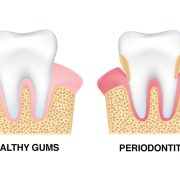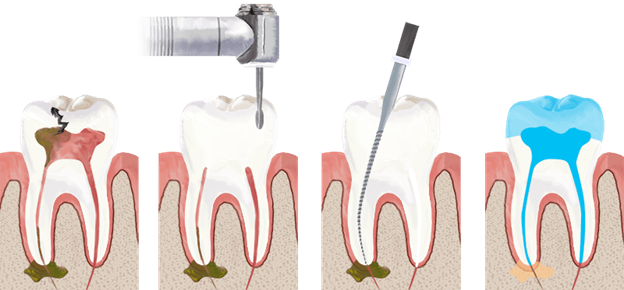Dental implants are artificial roots that can be used to replace missing teeth. When a tooth has been lost, the surrounding jawbone begins to deteriorate rapidly and will no longer support the creation of a dental implant. Therefore, it is critical that you schedule an appointment with a dentist as soon as possible if you have recently lost one or more teeth. During a dental implant treatment, the dentist will use small cutting tools and a camera to access the inside of your mouth before surgery.
Once you’ve been cleared for surgery, your dentist will place an anchor on the top of your natural tooth root (known as the “root canal”) and attach it to an artificial tooth. Later, when you have fully recovered from the procedure, they can insert a titanium alloy rod known as an “abutment” into your jawbone. Here are some complications related to dental implant treatment!
Bone decay and scar tissue formation
The gums around your natural teeth are usually very healthy and capable of supporting dental implants. However, when you lose a tooth, your gums will begin to bleed and will likely experience bone decay (also known as resorption) as the blood flow to the area is reduced. If your gums are severely damaged during the course of dental implant surgery. They may form abnormal scar tissue that interferes with the dental implant’s ability to support a tooth.

If your gums are very weak, your dentist may recommend the use of a tissue-regeneration product such as PRGF or BMP9, which can help to stimulate the natural regrowth of tissue. You are experiencing symptoms of gum disease such as bleeding, receding gums, or persistent bad breath, you may need to visit a dentist to have your teeth cleaned and receive dental implants as soon as possible.
Warning signs after dental implant surgery
Whether your dental implant complication is in the early or late stage, you may notice any or all of the following warning signs:
- Difficulty chewing
- Gum inflammation
- Gum recession
- Increased swelling
- Loosening of an implant or a replaced tooth
- Severe pain or discomfort
Dental implant surgery failure
If your dental implant fails. It can be very challenging to treat because the surrounding bone and gums have been injured and may not respond to treatment as well as they once did. If only one of your dental implants fails, your dentist may be able to regrow the surrounding tissue and use an additional dental implant to support a false tooth. However, if both of your dental implants fail. Your dentist may need to extract the remaining teeth and recommend that you receive a dental bridge or dentures.
Bite problems due to dental implant surgery
If your first dental implant surgery causes damage to your jawbone. It may affect the way your teeth come together when you eat and chew your food. You may need to visit a dentist and receive specialized dental appliances to help realign your teeth and allow you to chew your food properly again. You may also need to visit a speech therapist or a dietitian to learn how to eat in a way that doesn’t cause pain or damage to your teeth.

Oral Infection
One of the most common complications associated with dental implant surgery is an infection in the surrounding gums or bone tissue. If you experience swelling, redness. Or a bad taste in your mouth after receiving dental implants, you should visit a dentist immediately. Infection can lead to headaches, fevers, and other dangerous complications in your body.
If your dental implant surgery is successful, it can help you to regain your confidence and smile again. The dental implant procedure is more complex and challenging than other common dental procedures. Such as teeth whitening, tooth extraction, or dental crown construction.
Conclusion
If you have missing teeth, dental implants can give you the beautiful, healthy smile you want again. However, these procedures are challenging and require careful planning so that your gums. And jawbones can recover fully from the damage caused by the surgery. Schedule an appointment with a dentist to learn if dental implants are right for you. You may find that dental implants are the perfect solution to your missing teeth problem and can help you to regain your confidence and smile once again.






